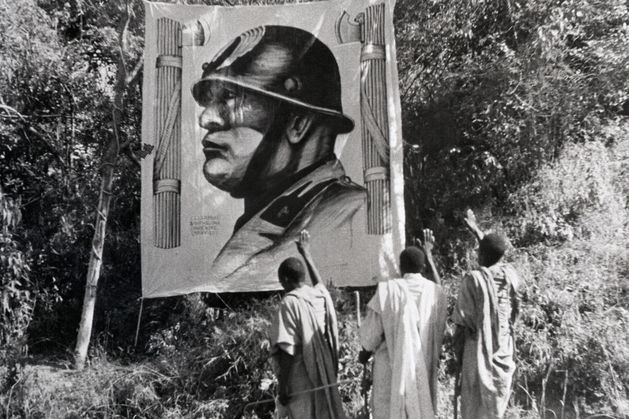The policy came out of Éamon de Valera’s realisation that strong states would disregard the rights of small ones
Ethiopians from the captured Tigre province pay their respects, Italian fashion, to a huge likeness of Benito Mussolini in 1934. Photo: Bettmann Archive
This year marks the 50th anniversary of the death of Éamon de Valera, an era-defining politician and figure in public life. It was a political career of extraordinary longevity, taking him from the occupied Bolands Mills of Easter Week to the Ireland visited by John Fitzgerald Kennedy in 1963. Sitting beside the young American, De Valera looked like a relic of an earlier time. JFK, an aide noted, asked the Irish leader about the Rising, and then “listened, spellbound”.
These days, it seems “De Valera’s Ireland” is alluded to only when trying to capture the country’s perceived backwardness in the decades spanning the 1930s to the 1970s. Yet some of his policies remain popular and defining features of Irish life, not least military neutrality (a very different thing from political neutrality).
#Donal #Fallon #Israeli #ambassador #wrong #Irelands #wartime #neutrality








